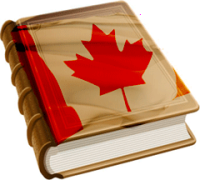Students spend the majority of their their time in university in classes that will propel them towards a future career. Many don’t have electives and the few who do sometimes waste them on so-called ‘bird courses.’ If you’re looking for a new approach, try choosing courses that are worth your while—either subjects that interest you, or courses that provide a fresh look at your field and will give you a new spark that will help keep you excited about studying in that department. Here are five courses for students, across the board, that either have great professors, interesting material, or—if you are really lucky—both.
History of Math (MATH 338): Are you interested in how math began and developed? Does learning how to do math in the way of the Egyptians and Babylonians intrigue you? This can be a class for both math and non-math students who appreciate the origins of specific equations and how they changed the world. A word of caution—general math knowledge and, more specifically, calculus, is valuable in this course. If you’re inexperienced in those areas, however, you can always go to Room 911 in Burnside to visit the Department of Mathematics & Statistics help desk.
World of Chemistry (CHEM 181): There are four different World of Chemistry courses: Food, Environment, Technology, and Drugs. The professors for the course, Harpp, Fenster, and Schwarcz, are all well-known for being funny, interesting, and knowledgeable. The courses themselves address diverse topics. For example, the food course has a class on wine and cheese where you learn about things like reading wine labels and good pairings. You’ll also learn about the chemical structures of sugars, carbohydrates, and fats and pertinent issues like global warming or dieting. Finally, there is the option of buying notes from the Note Taking Club (NTC), which have the most important points in bold. This allows you to better enjoy what you are learning in class by reducing the level of stress caused by scrambling to write down all the important information for the final exam.
Social Psychology (PSYC 215): Social interactions are an important part of everyday life, which makes a course about social psychology suitable for anyone. Professors Lyndon and Taylor alternate teaching this course. Having taken this course myself, I can assure you that both are fantastic. I have nicknamed it Dating 101 because Taylor teaches how to read the signals that indicate if it is okay to hold someone’s hand on a date—it’s hilarious. Similarly, Lyndon has a 3.5 rating out of four on Ratemyprofessors.com and is described as entertaining. Every class is interesting, the matieral is very applicable. You’ll learn a lot about yourself and those around you.
Religion and the Sciences (RELG 340): This course looks at how science and religion interact and affect one another, and is suitable for students in philosophy, religious studies, the history and philosophy of science, and science, or students wanting to expand their horizons regarding the so-called conflict between religion and science. The professor who teaches the course keeps an open mind, listens to different student’s perspectives, takes the time to repeatedly explain complex philosophical ideas, and, most importantly, does not choose a side between religion and science—at least not in the classroom. Perspectives of Science (BIOL 210) is another option for students looking to see how science and the arts interact with one another, and how the arts are quite important to the sciences.
Special Topics in Canadian Studies (ENGL 441): In humanities, the focus is all too often on Britain and America. Most courses focus on these countries, and will add notes here and there about how, and if, Canada plays a role in a particular field. Courses like Special Topics in Canadian Studies are great because they vary from year to year, provide an interesting Canadian perspective on a field, and incorporate a cultural studies aspect to the course. This could mean that students watch movies and examine visual media like photos, in addition to reading a large variety of literature. If English is not your thing, try to find a class in a different department that focuses on Canada or Montreal in relation to Canada and the world.









